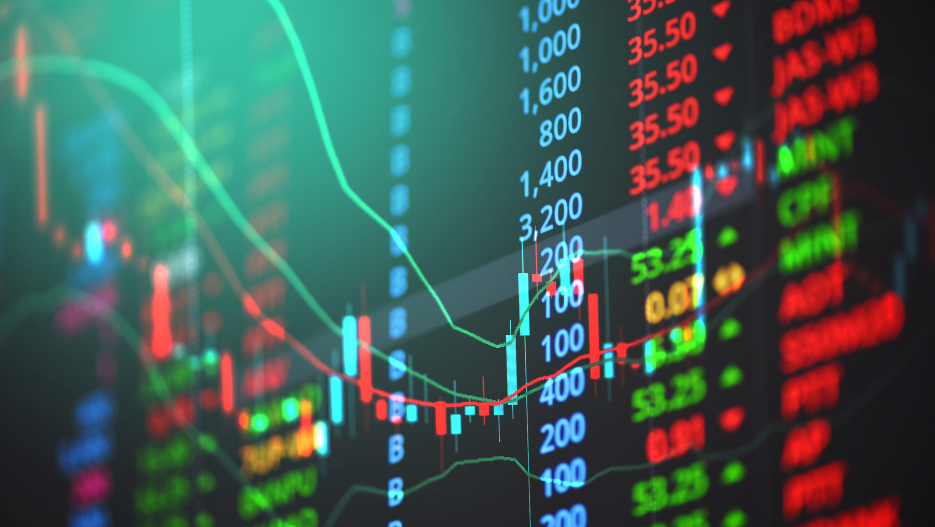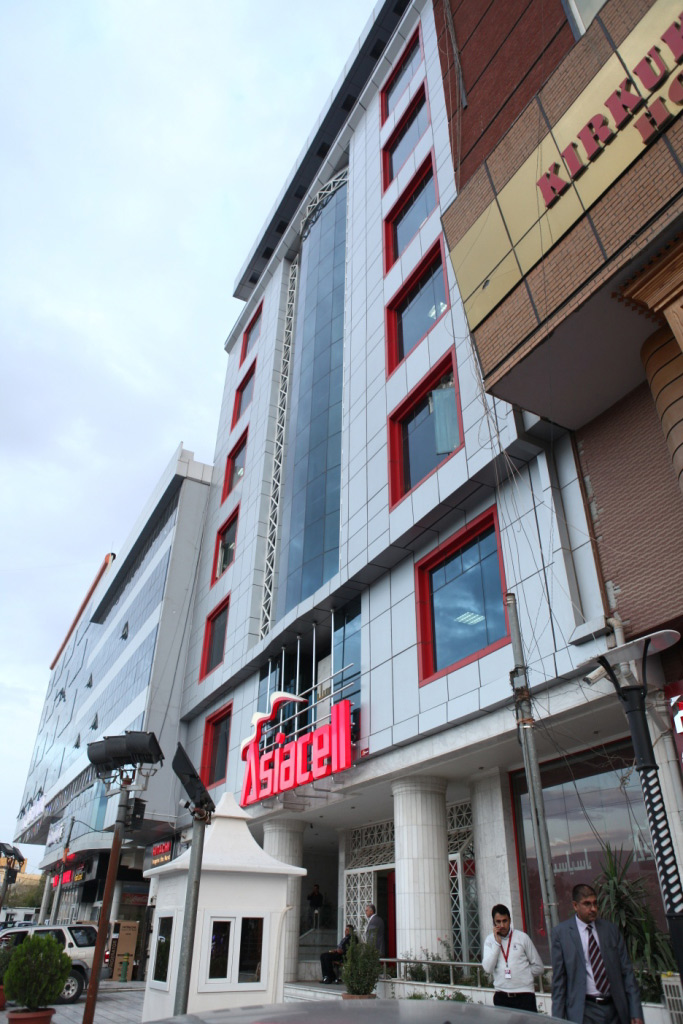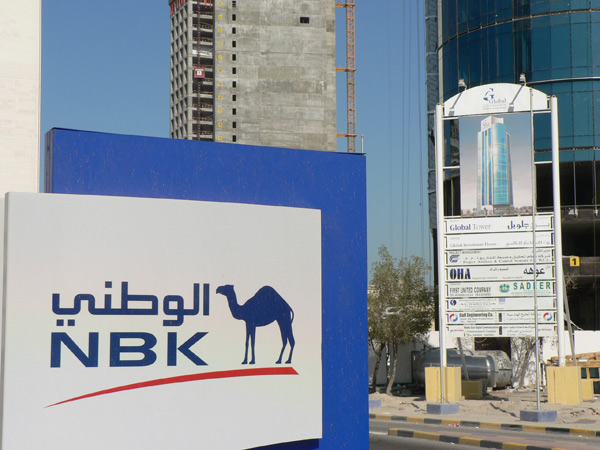Iraq’s Stock Exchange: Bull in Iraq
Among the small but growing band of investors in the Iraq Stock Exchange (ISX), the question most asked is whether 2013 will mark the start of a new bull market.

By Ali Albazzaz and Mark DeWeaver
Among the small but growing band of investors in the Iraq Stock Exchange (ISX), the question most asked is whether 2013 will mark the start of a new bull market.
Two recent developments may help drive significant foreign capital inflows. The first is the much publicised and surprisingly successful IPO of Asiacell Communications, Iraq’s largest mobile phone company, which listed on February 3. The second is the awarding of Iraq’s first custody license, a breakthrough that few were predicting even a couple months ago and few are aware of even now.
The Iraqi economy is enjoying brisk expansion, fuelled by rapidly growing oil production. The IMF forecasts GDP growth of 14.7 per cent for 2013, after over 10 per cent growth in 2012. Oil production rose 24 per cent last year to 3.35m barrels per day.
Two recent developments may help drive significant foreign capital inflows. The first is the much publicised and surprisingly successful IPO of Asiacell Communications, Iraq’s largest mobile phone company, which listed on February 3. The second is the awarding of Iraq’s first custody license, a breakthrough that few were predicting even a couple months ago and few are aware of even now.
At the same time, many of the ISX-listed companies have enjoyed strong growth over the last few years and are quite cheap on a price/earnings to growth (PEG) basis. Earnings growth at five of the largest listed banks averaged 106 per cent in 2012. These names have a median PEG ratio of 0.12 — a fraction of the median PEG ratio of 0.82 for major listed regional banks.
Moreover, the political situation is more stable than appearances might suggest, and security, though still a concern, is much improved. The average fund manager can safely visit Baghdad with a light security detail, but regular trips are seldom necessary. Account opening and trading can be executed remotely, and investors often meet with brokers and the managers of listed companies in the Kurdish region or outside of Iraq.
The exchange itself is housed in a sand coloured building in the affluent Baghdad neighbourhood of Karrada. On-site trading occurs on the ground floor, where investors can be found milling around large screens and rows of telephones, and in the trading rooms of the exchange’s member brokerages.
The ISX has developed rapidly since it replaced the Saddam Hussein-era Baghdad Stock Exchange in 2004, when it was launched with only 15 listed companies and trading was carried out using white boards and an open outcry system. Foreign investment was permitted in 2007 and a new electronic trading system was introduced in 2009. Apart from a brief period in 2006, it has remained open throughout Iraq’s recent turbulent past, even after suffering an attack in October 2010.
Today, the ISX trades for 2 hours a day, 5 days a week, and is home to 73 listed companies and 47 brokers. As of December 2012, banks accounted for 83 per cent of the total market cap. This sector includes local powerhouses such as North Bank and Kurdistan International Bank and subsidiaries of foreign institutions such as Bank of Baghdad, a subsidiary of the Kuwaiti lender Burgan Bank, and HSBC subsidiary Dar Es Salam Bank.
Today, the ISX trades for 2 hours a day, 5 days a week, and is home to 73 listed companies and 47 brokers. As of December 2012, banks accounted for 83 per cent of the total market cap. This sector includes local powerhouses such as North Bank and Kurdistan International Bank and subsidiaries of foreign institutions such as Bank of Baghdad, a subsidiary of the Kuwaiti lender Burgan Bank, and HSBC subsidiary Dar Es Salam Bank.
The investment case for Iraq is getting stronger all the time. Nevertheless, the usual cast of intrepid emerging market public equities investors has remained on the side-lines. The reasons for this include the lack of third party custody, a small market cap (only $5bn at year-end 2012), low average daily turnover ($5m for December 2012), and a limited choice of sectors.
Which is where the Asiacell IPO and new custody arrangements mark a turning point.
The Asiacell IPO has almost doubled the exchange’s market cap overnight and given equities investors exposure to Iraq’s fast growing and highly profitable telecoms sector for the first time. The IPO was a requirement of Asiacell’s license, which required the company to offer 25 per cent of its shares to the public. While forcing companies to list might seem a somewhat counterintuitive method to develop a country’s capital markets, in this case the strategy seems to have paid off. The offering, worth $1.24bn, was fully subscribed and the shares closed up 5.7 per cent on the first day of trading.
This forced listing arguably did not entirely satisfy the regulators’ objectives of giving Iraqis a direct stake in Asiacell and increasing local participation in the market. Around 70 per cent of the shares were taken up by foreign investors. The largest of these was the current majority shareholder, Qatar Telecom (Qtel), followed by high net worth individuals in the Gulf Co-operation Council and a handful of foreign investment funds.
The listing has, however, been quite successful from the point of view of developing Iraq’s capital markets. Asiacell and its advisors, the Iraqi brokerage Rabee Securities and its affiliate MelakIraq, have managed to pull off the biggest IPO in the Middle East since 2008. Important new players have come into the Iraqi market. The ISX is now on a lot more people’s radar screens.
This IPO has also set an important precedent. In addition to Asiacell, Iraq has two other mobile phone companies – Zain Iraq and Korek Telecom – that are also required to offer 25 per cent of their shares to the public. The first of these, Zain, is expected to list in the middle of this year. These two listings have the potential to raise the total ISX market cap to more than $15bn, at last moving the exchange off the list of the world’s smallest bourses. A clear path to this goal has now been forged.
The advent of custody services is a second important step in this direction. Starting this year, National Bank of Kuwait has begun custodying Iraqi shares through its 80 per cent-held subsidiary Credit Bank of Iraq.
Custody has been a much anticipated development for the Iraqi market because most of the larger institutional investors have mandates requiring their shares be held by custodians. After hopes were dashed last year when HSBC cancelled its custody plans for Iraq, the provision of custodial services, even if not by the international franchise many were expecting, is an exciting breakthrough.
With three attractive mobile companies listing and a custody solution finally at hand, the ISX is now in a position to mobilise significant amounts of foreign capital. These two developments, combined with Iraq’s rapid economic growth and the strong outlook for corporate earnings, mean that 2013 might well be the year the ISX really takes off.
We certainly hope so.
Ali Albazzaz is a vice president at an Iraq focused investment firm and manages an Iraqi equities fund. He is based in London and Baghdad.
Mark DeWeaver is a co-founder of Quantrarian Capital Management a DC-based emerging markets hedge fund and the author of Animal Spirits with Chinese Characteristics: Investment Booms and Busts in the World’s Emerging Economic Giant.